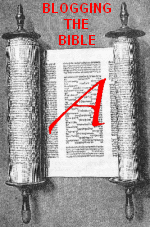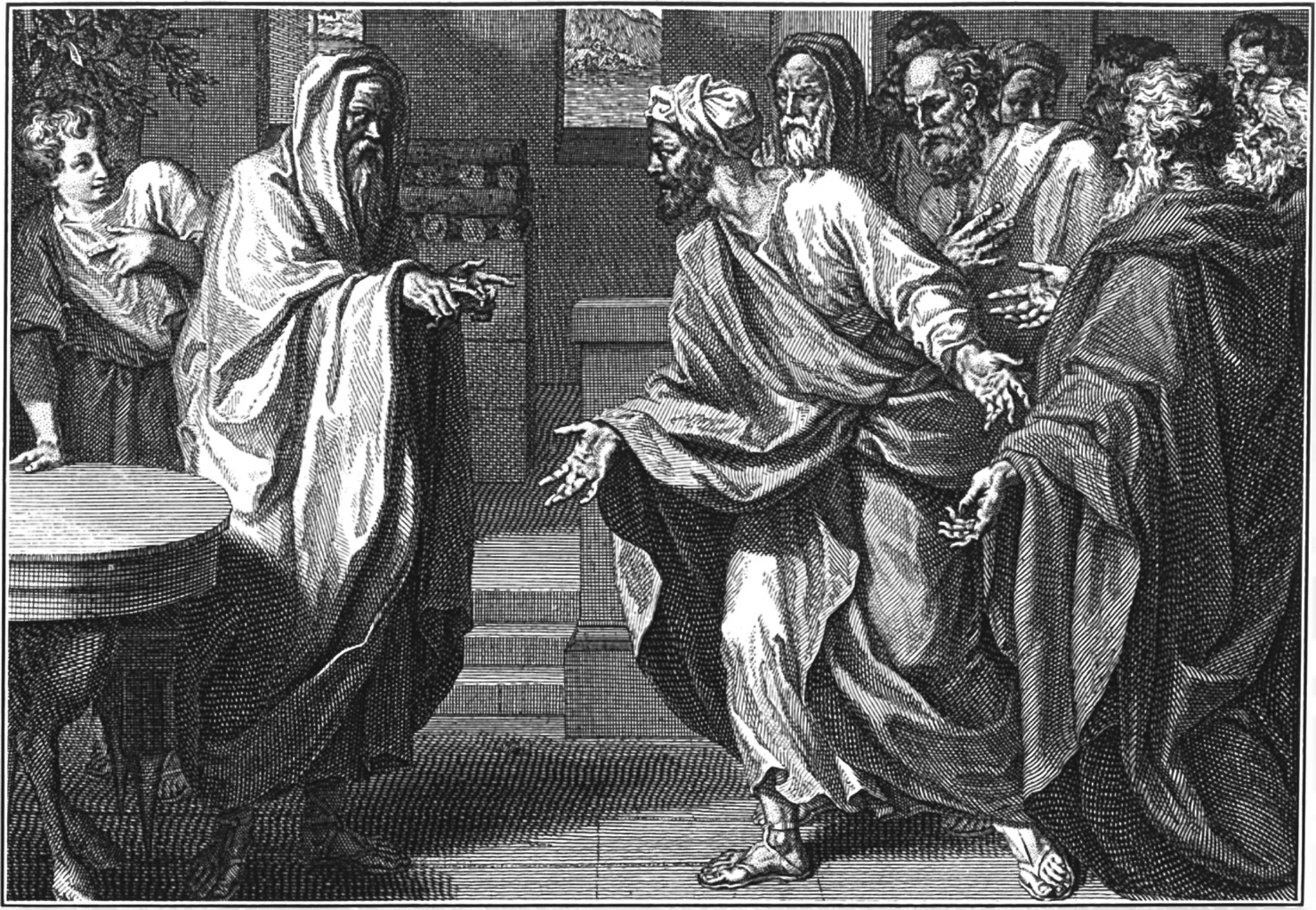 –[continued from previous post]–the Ark was placed in a remote town and largely forgotten. Samuel’s long reign (over 20 years) is given just one chapter. The only notable thing he does is suggest the Israelites stop worshipping other gods so that YHWH will give them victory over the Philistines. Which he does. The best modern equivalent I can think of is: “Revered Don, I offer you the deepest of my respects, and some humble aged wine from my family estate. Now, I have come to you, on this, the day of your daughter’s wedding, because…”
–[continued from previous post]–the Ark was placed in a remote town and largely forgotten. Samuel’s long reign (over 20 years) is given just one chapter. The only notable thing he does is suggest the Israelites stop worshipping other gods so that YHWH will give them victory over the Philistines. Which he does. The best modern equivalent I can think of is: “Revered Don, I offer you the deepest of my respects, and some humble aged wine from my family estate. Now, I have come to you, on this, the day of your daughter’s wedding, because…”
I’ll give YHWH some credit — he’s at least pretty consistent in his donly behaviour.
Samuel has two sons. Just like Eli’s sons, they’re scoundrels, eg. taking bribes. Note that Samuel’s been portrayed in glowing terms throughout the book and is seen as genuinely righteous. I guess the religious right could learn a thing or two from here: often for them, the sins of the kids are visited on the parents as they’re assumed not to have instilled enough “values” into their child. But I digress…
The populace wants a king instead of Samuel’s sons. Samuel is disappointed. YHWH himself tells him to follow the people’s wishes, but that this means the people have rejected YHWH. He then tells Samuel to explain to the people that a king will tax them, work them, seize choice fields and even (the horror!) take away their best male and female slaves [8:16]. See, what’s most wrong about the situation is that these slaves were mi-i-i-ine!

The people respond that they want a king anyway, so they could be “like the other nations”. This seems to be the reason for the criticism — the Israelites are meant to keep themselves pure and aloof. Of course even this has problems. This explanation comes at the end of the passage, way after Samuel’s initial rebuke. Also, Samuel never offers a third solution. In his mind it’s a dichotomy between his corrupt sons and a king; and he’s advising against a king. I guess there were no laws against advising of a conflict of interest back then.
When I first studied this passage in about year 9, I was puzzled since just a few months before we studied the laws of the king from Deutoronomy 17: if you decide to appoint a king, he should not be a foreigner, nor have too many horses (lest he be tempted to go back to Egypt — weird, huh?), nor too much wealth, etc etc. So apparently the Torah itself is saying a king is allowed and even telling you how to do this and here both Samuel and YHWH think it’s a bad idea — what gives?
Even assuming the author of Samuel was aware of the Deuteronomy passage, this passage doesn’t paint a king in glowing terms. It doesn’t say “you must appoint a king”. Rather, “if you want to have a king, these are the restrictions”. It seems more of a concession to the [possibly unfortunate] fact that you might want a king. According to traditional Jewish commentaries, hypothetical language in the Torah often indicates an undesirable (or even forbidden) scenario. However, things get even murkier because the commentators actually interpret that passage as a command to request a king (in the right manner — and because they did it in the wrong manner here, it’s criticised).
It’s very hard to give a concrete answer so here’s my uneducated and unscholarly guess. The tone and restrictions of Deuteronomy appear to be a very lukewarm so the author isn’t that king-crazy. The rabbinic commentaries see it as a commandment because they’re retrofitting later concepts of the messiah and Davidic kingship onto the passage. The author of Samuel may well have known about the passage and was simply having Samuel be his mouthpiece of displeasure about “bad” reasons for a king. For storytelling purposes, Israel saying it wants to be like other nations is placed further on to add a slight bit of drama. The author himself is not against kings per se — as we’ll see he rather likes David. Of course there could be 1000 things wrong with these hunches but there’s not that much at stake. It does however show how detective-like studying ancient texts must be.
The discussion about kings has parallels. Critics of the bible often point to its apparent endorsement of slavery. Defenders sometimes say that the passages are meant to be like my interpretation of the Deuteronomy kings passage: a lukewarm concession to a problematic part of human nature, one that gives restrictions more than anything else. The problem with this is that I’m not aware of any bible passage that paints the Israelite ownership of slaves in a negative way.
Now that the Israelites have decided on a king, it’s time to— [continued in next post]





0 Comments